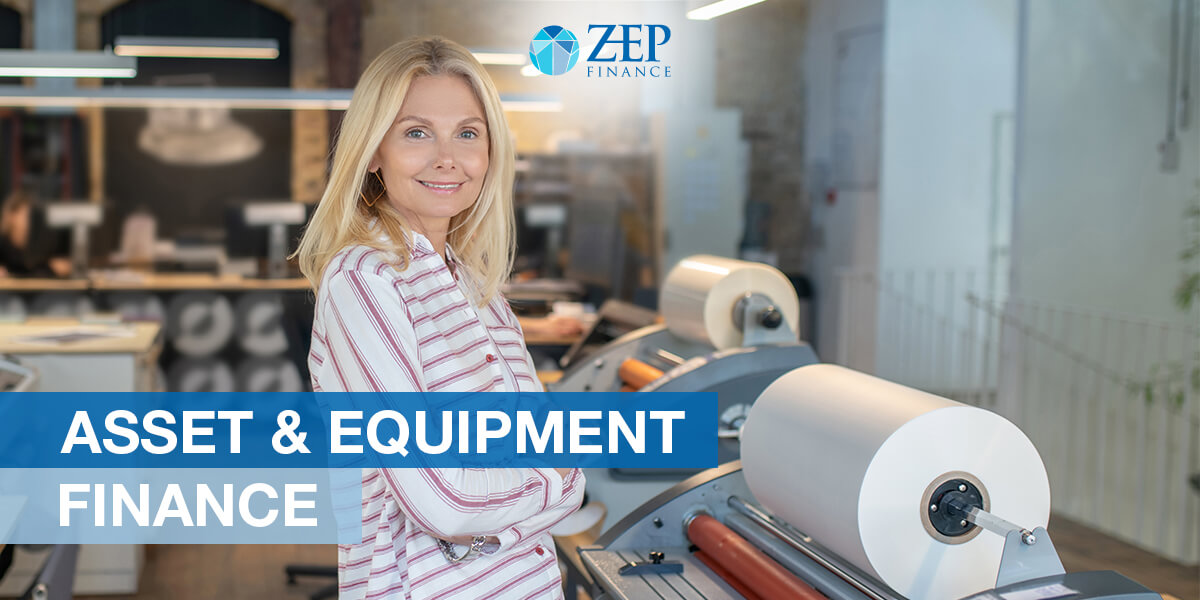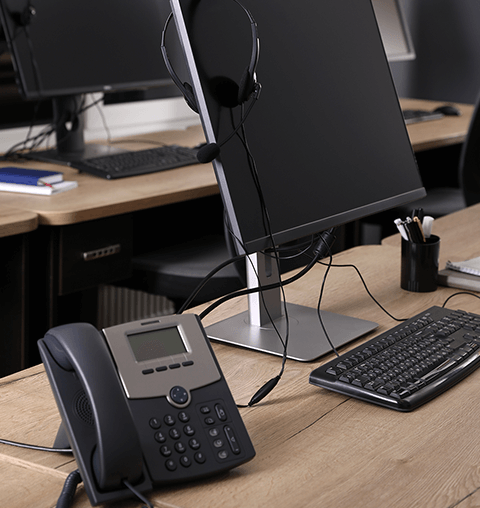
At ZEP Finance, we understand the pivotal role of asset and equipment finance in propelling businesses and individual ventures forward. Our dedicated team of brokers is here to guide you, ensuring you secure the best financing solution tailored to your unique needs.
Asset and equipment finance is a specialised form of business asset finance used by businesses and individuals to acquire essential assets and equipment. By choosing ZEP Finance, you’re opting for competitive rates, flexible terms, and a seamless application process. Ready to embark on your financing journey? Let’s get started.


avigating the world of finance can be daunting. Many dive in without fully understanding the nuances, leading to less-than-ideal outcomes. Our brokers simplify the process. From initial consultation to finalising the paperwork, we’re with you every step of the way, ensuring clarity and confidence.
Understand the specific assets or equipment required for your business operations.
Pick the kind of asset or equipment finance option you need, which can include hire purchase, operating lease, and finance lease.
Submit an application to the finance provider, detailing the type and cost of the equipment, its intended purpose, and other relevant details.
The finance provider will assess your application, which may include checking the value of the asset, your business’s financial health, and your creditworthiness.
Once approved, the finance provider will lay out the terms of the agreement, including interest rates, repayment schedules, and any other conditions.
Sign the necessary documentation to formalise the agreement.
The finance provider will typically handle the purchase of the asset and have it delivered to your business location.
Make regular repayments as per the agreement. This could be monthly, quarterly, or annually.
Depending on the type of finance chosen, you may be responsible for the maintenance and insurance of the asset.
At the end of the term, decide on the next steps based on the type of finance. This could involve taking ownership of the asset, returning it, or renewing the lease.
A contractual agreement where the lessor (owner) provides the lessee (user) the right to use an asset for a specified period.
Acquire an asset by paying in instalments; ownership is transferred once the final payment is made.
A loan agreement where the borrower provides a movable personal property (chattel) as security.
A vehicle lease agreement in which an employer, employee, and a finance company enter into a tripartite agreement.
A lease agreement where the lessor retains the risks and rewards of ownership.
The ability to access and finance equipment as well as assets can make a significant difference to the success of an enterprise. As businesses in various sectors look to stay competitive and efficient, understanding the types of assets and equipment that can be financed becomes crucial.
IT Systems – Computers, servers, networking equipment, and other related technology.
Tech Equipment – Specialised technology tools and devices used in various industries.
Machinery – Industrial machines, manufacturing equipment, and other heavy machinery.
Company Cars – Vehicles purchased for company use, including sedans, SUVs, and more.
Other Vehicles – This can include trucks, vans, and other specialised vehicles.
Tools – Hand tools, power tools, and other equipment used in trades and services.
Forklifts – Used in warehouses and other storage facilities.
Specialised Equipment – Equipment tailored for specific industries, such as medical devices or agricultural machinery.
Commercial Kitchen Equipment – Ovens, stoves, fridges, and other equipment used in restaurants and cafes.
Other Tangible Assets – This can encompass a wide range of items not listed above, as long as they are used for working purposes.
It’s worth noting that businesses can typically use finance leases to fund any tangible asset except real estate. If you’re considering a particular asset finance or financing a piece of equipment, talk with one of our finance brokers and get the kind of help that only ZEP Finance can provide.

Incorporating asset and equipment finance into a business strategy can provide a competitive edge, financial flexibility, and the means to drive growth and innovation. Here are the benefits you get when you decide to add this to your business plans:
Financing allows businesses to preserve their working capital by spreading the cost of assets over a period, ensuring they have funds available for other operational needs.
Businesses can access the latest equipment and technology without the hefty upfront costs, ensuring they remain competitive and efficient.
Depending on the structure of the finance agreement, businesses might be able to claim tax deductions on interest payments, depreciation, or lease expenses.
Financing offers a range of repayment options tailored to suit the cash flow patterns of the business, including seasonal or structured payments.
By opting for asset and equipment finance, businesses can keep their existing lines of credit intact for other purposes.
Fixed financing rates mean businesses are not subject to fluctuating interest rates, providing stability in repayments.
Some finance agreements, like leases, may include asset disposal or upgrade options at the end of the term, eliminating the hassle of selling outdated equipment.
Financing can often include additional costs like installation, maintenance, or training into the agreement, providing a comprehensive solution.
By financing and using the equipment immediately, businesses can generate revenue faster, leading to a quicker ROI.
At the end of the finance term, businesses may have the option to purchase the asset, return it, or upgrade to a newer model, depending on the type of agreement.
With the rapid pace of technological advancements, equipment can become outdated quickly. Financing allows businesses to upgrade or replace assets more frequently, ensuring they always have access to the latest tools.
Asset and equipment finance can be tailored to specific business needs, including the type of asset, the length of the term, and repayment structure.
Asset financing is a type of borrowing related to a company’s assets. It allows companies to use their existing inventory, accounts receivable, or short-term investments to secure short-term financing.
There are two primary ways:
Asset financing offers financial flexibility by increasing short-term funding and working capital. It’s an effective alternative when a company might not qualify for traditional financing.
The most common types include:
This type of financing offers flexibility to support various asset and equipment needs. Terms can range from 1 to 7 years, allowing businesses to tailor plans to their specific requirements.
Details such as the type and cost of the equipment, whether it’s new or used, its intended purpose, the loan term duration, and expected repayments are essential.
Yes, a local mortgage broker can help you refinance your existing mortgage by connecting you with lenders who offer refinance products that meet your needs.
Yes, a local mortgage broker can work with self-employed borrowers to help them find mortgage products that meet their unique financial situation.
Lenders typically look at equipment valuation, direct debt service coverage (ensuring the new equipment can generate enough profit to cover the loan), and the borrower’s credit score.
Yes, you can work with a local mortgage broker remotely, regardless of where you live. Many mortgage brokers offer online or phone consultations and can help you secure a mortgage no matter where you’re located.

ZEP Finance Pty Ltd ABN 44 139 018 643
Credit Representative 374069 is authorised under Australian is authorized under Australian
Mortgage Brokers Lennox Head | Home, Land, Investment Loans Byron Bay, Ballina, Northern Rivers & Lismore
Location
5/74 Ballina St, Lennox Head, NSW, 2478
Email Address
Phone
Copyright 2022 © Zep Finance